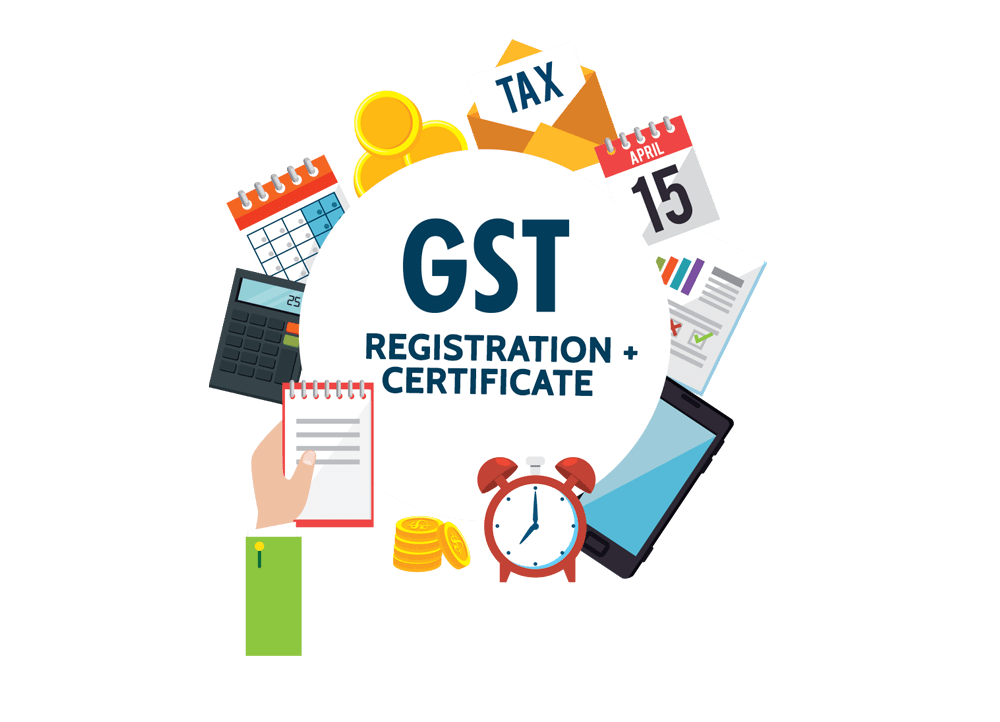Why Companies Choose the most effective GST Registration Services in Singapore
Why Companies Choose the most effective GST Registration Services in Singapore
Blog Article
From Beginning to Complete: The Ultimate Roadmap to GST Registration for Companies Seeking Financial Security
Navigating the intricacies of Item and Services Tax (GST) registration is a crucial action for services striving for financial security. From understanding the fundamental concepts of GST to following post-registration guidelines, the procedure can seem intimidating initially glance. However, breaking down the roadmap right into convenient actions can streamline the registration journey for services seeking to enhance their economic standing. Let's explore the essential components that compose this best roadmap and find how each phase contributes to laying a solid structure for monetary success.
Comprehending GST Fundamentals
Delving into the essential concepts of Goods and Solutions Tax (GST) is crucial for acquiring a thorough understanding of its implications on organizations and the economic situation. Input Tax Credit Rating (ITC) is a substantial attribute of GST, allowing businesses to assert credit rating for tax obligations paid on inputs, minimizing the general tax problem. Recognizing the essentials of GST is essential for businesses to conform with tax obligation laws, manage their funds successfully, and add to the country's economic development by participating in a clear tax obligation system.
Qualification Standards for Registration
As of the present policies, the threshold restriction for GST enrollment is an annual accumulation turn over of 40 lakhs for services running within a state, other than for unique category states where the limitation is 20 lakhs. Additionally, specific businesses are required to register for GST irrespective of their turn over, such as interstate vendors, casual taxable individuals, and services liable to pay tax under the reverse fee system. It is crucial for services to completely analyze their turnover and purchase kinds to determine their GST registration obligations accurately.
Papers Needed for Registration
Having satisfied the eligibility standards for GST registration, organizations should now guarantee they have the requisite files in location to proceed with the registration process effectively. The papers required for GST registration typically include evidence of business constitution, such as partnership action, enrollment certificate, or consolidation certificate for different kinds of services. Furthermore, organizations require to offer documents establishing the primary place of business, such as a rental contract or electricity expense.
Step-by-Step Registration Process
Commencing the GST registration procedure includes a series of structured actions to make sure a seamless and compliant registration for services. The primary step is to see the GST site and browse around this web-site complete the enrollment form with precise details of the company entity. Following this, the applicant receives a Temporary Recommendation Number (TRN) which is used to return to the application procedure if it's not completed in one go.
Next, all called for documents as per the list offered by the GST portal requirement to be posted. These records usually include proof of business enrollment, address and identification proofs of marketers, economic declarations, and service entity's frying pan card.

Post-Registration Conformity Standards

Verdict
To conclude, services looking for financial security has to recognize the fundamentals of GST, fulfill eligibility criteria, gather needed papers, comply with the step-by-step enrollment procedure, and adhere to post-registration guidelines - Best GST registration services in Singapore. By adhering to these steps, organizations can guarantee compliance with tax obligation policies and keep financial security in the future
In addition, certain organizations are called for to register for GST irrespective of their turn over, such as interstate vendors, laid-back taxable persons, and businesses accountable to pay tax obligation under the reverse charge mechanism.Having actually fulfilled the eligibility requirements for GST registration, businesses should currently guarantee they have read more the requisite files in place to proceed with the registration procedure efficiently. The records required for GST registration typically consist of evidence of business constitution, such as collaboration action, registration certificate, or consolidation certification for various types of businesses. Furthermore, services require to provide papers developing the principal place of company, such as a rental arrangement or electrical energy costs.Commencing the GST enrollment process includes a series of structured actions to ensure a certified and smooth registration for services.
Report this page